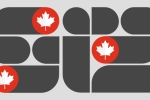
Canada: Alberta Tourism Levy
The following is information for temporary accommodation providers (short term rental providers) in Alberta about collecting and remitting the tourism levy.
Effective April 1, 2021, changes to the Alberta Tourism Levy Act will be implemented. These changes include the extension of the tourism levy to short-term rentals offered through online marketplaces (e.g., Airbnb, Vrbo, Expedia, etc.) booked by purchasers on or after April 1, 2021.
The tourism levy is 4% of the purchase price of the accommodation.
This includes any unit of accommodation provided in Alberta, including stays in residential units.
Who remits the tourism levy
The tourism levy is collected and remitted to Alberta Tax and Revenue Administration (TRA) by temporary accommodation providers in Alberta, including an:
Operator: a person who sells, offers for sale, or otherwise provides accommodation in Alberta, but does not include an online broker.
Accommodation Host: an operator that sells, offers for sale, or otherwise provides temporary accommodation of a residential unit in Alberta.
Online Broker : an operator of an online marketplace.
Accommodations excluded or exempt from the tourism levy
The levy does not apply to:
- Rooms occupied continuously for 28 days or more by the same individual
- the purchase price for the unit of lodging is less than $30 per day or $210 per week; or
- the person's gross revenue from the provision of lodging in Alberta in the previous 12 months was less than $5,000; and
- the gross revenue in the next 12 months is reasonably estimated to be less than $5,000
- Social care facilities, nursing homes, or hospitals
- Licensed supportive living accommodation
- Accommodation provided on a reserve in Alberta to a person or entity exempt from tax under the federal Indian Act
- The Government of Canada (direct billing)
- Members of the diplomatic or consular corps
You must register for the Tourism Levy program if you provide temporary accommodation in Alberta. Review the steps for how to register your account, file your return, and pay here .
10 Tips: How to Report the Tourism Levy
The content of this article is intended to provide a general guide to the subject matter. Specialist advice should be sought about your specific circumstances.

© Mondaq® Ltd 1994 - 2024. All Rights Reserved .
Login to Mondaq.com
Password Passwords are Case Sensitive
Forgot your password?
Why Register with Mondaq
Free, unlimited access to more than half a million articles (one-article limit removed) from the diverse perspectives of 5,000 leading law, accountancy and advisory firms
Articles tailored to your interests and optional alerts about important changes
Receive priority invitations to relevant webinars and events
You’ll only need to do it once, and readership information is just for authors and is never sold to third parties.
Your Organisation
We need this to enable us to match you with other users from the same organisation. It is also part of the information that we share to our content providers ("Contributors") who contribute Content for free for your use.

This website uses cookies to various ends, as detailed in our Privacy Policy . You may accept all these cookies or choose only those categories of cookies that are acceptable to you.
Manage your cookies
Cookies are saved on your device to ensure proper operation and security of the website, help statistical analysis of its usage, improve its functionality, or record navigational choices you make. Further details can be found in the cookies section of CanLII's Privacy Policy.
A few cookies are strictly necessary to use CanLII and are always active. Cookies that are used to measure performance or improve functionality can be enabled using the buttons below.

Tourism Levy Regulation, Alta Reg 398/1987
- Versions (6)
- Enabling statute (1)
- Amendments (0)
- Cited by
Current version: as posted on Feb 6, 2024
- Tourism Levy (Ministerial) Regulation , Alta Reg 102/2008
- Tourism Levy Regulation , Alta Reg 398/1987
No amending legislation available on CanLII

Accommodation Legislation
Accommodation providers in Alberta are subject to a variety of acts and regulations. These are some frequently referenced pieces of legislation that must be adhered to:
Barrier-Free Design
Innkeepers act, liquor, gaming & cannabis, minimum housing & health standards, residential tenancies act, service dogs act, tourism levy act.
In partnership with the Barrier-Free Sub-Council of the Safety Codes Council, the Government of Alberta’s Public Safety Division has developed the Barrier-Free Design Guide to provide further interpretation and understanding of accessibility requirements under Section 3.8 of the Alberta Building Code . The guide also makes recommendations for best practice design solutions, including residential living.
It’s the Law — Post It
By law, every innkeeper must keep conspicuously posted in the office of the innkeeper’s inn, and in every bedroom ordinarily used for the accommodation of guests, a printed copy or plainly written copy of Section 7 of the Innkeepers Act.
Legislation
All businesses with liquor licences are subject to the Gaming, Liquor and Cannabis Act . If you hold a liquor licence for your property, it’s important to ensure you understand and adhere to this legislation. Alberta Gaming, Liquor, and Cannabis (AGLC) is responsible for administering the Act, Regulation, and any related policies.
Staff Training
The AGLC requires your staff be properly trained to serve and work on licensed premises. It offers a number of training programs to help you certify your staff:
- Proserve Training
- Reel Facts VLT Training
- ProTect Security Staff Training
Uphold the integrity of Alberta’s tourism and hospitality industry.
Ensure your property adheres to our province’s Minimum Housing and Health Standards.
Providing Staff Accommodation
If your property provides staff accommodation, you are subject to Alberta’s Residential Tenancies Act . It is important to understand your rights and obligations as a landlord, especially if the employees is terminated.
Ending a Periodic Tenancy
A landlord or tenant may end a periodic tenancy with notice if the employment of the tenant is terminated. The notice must:
- Be in writing;
- Give the address of the residential premises;
- Be signed by the party giving the notice;
- State the reasons for the termination of the tenancy; and
- Set out the date that the tenancy will terminate.
Service dogs are allowed anywhere their owners are. Owners carry identification cards as proof for their qualified service dogs.
Your Responsibility
Ensure your staff understands your legal obligations under the Service Dogs Act . Failure to comply could mean a $3,000 fine for your property.
The Tourism Levy Act requires that providers of temporary accommodation in Alberta collect and remit the levy to Alberta Finance Tax and Revenue Administration. The AHLA estimates that 1200 hotels and motels from communities across Alberta collect and remit the levy. Roughly 96% of the guest rooms on which the levy is charged are owned by AHLA members.
When the Tourism Levy became effective on April 1, 2005, the Economic Development Minister stated that all of the funds collected would be used for tourism marketing and development. The AHLA maintains the position that the full amount of the Tourism Levy should be allocated to these types of initiatives.
Effective April 1, 2021, short-term rentals must also pay the Tourism Levy.
It is up to you to ensure you are collecting and remitting the levy properly. A number of hotels around the province have been audited, and some have received significant assessments for not charging the Levy properly.
Review the Government of Alberta’s Tourism Levy Top 10 Tips.
Exemptions from the Levy
As stated on the Government of Alberta website , the levy does not apply to:
- rooms occupied continuously for 28 days or more by the same individual
- the purchase price for the unit of lodging is less than $30 per day or $210 per week; or
- the person’s gross revenue from the provision of lodging in Alberta in the previous 12 months was less than $5,000; and
- the gross revenue in the next 12 months is reasonably estimated to be less than $5,000
- social care facilities, nursing homes, or hospitals
- licensed supportive living accommodation
- accommodation provided on a reserve in Alberta to a person or entity exempt from tax under the federal Indian Act
- the Government of Canada (direct billing)
- members of the diplomatic or consular corps
The operator can omit the Tourism Levy charge only if an exemption condition is known at the time the room is paid for and is recorded on the invoice. Operators must retain relevant documents to support all tax exempt revenue recorded. These documents are subject to inspection and audit by appointed representatives of the Provincial Treasurer.
If at first the levy is charged, and the qualification for an exemption is later established, the operator may refund the levy to the payer and deduct the amount on its next tax return. The operator should then retain the documentation to support its own deduction.
Alberta government to add tourism levy to short-term rentals
Details to be included in thursday's provincial budget.
Social Sharing
Renting an Airbnb or VRBO in Alberta will soon be more expensive.
The Alberta government plans to introduce details this week about extending its tourism levy to short-term rentals like Airbnb and VRBO.
A government spokesperson confirmed that details of the levy will be announced in Thursday's budget, but declined to provide further information citing budget confidentiality.
The levy adds a four-per-cent charge to any rental under 28 days, though most short-term rentals aren't included under the current guidelines.
Though specifics aren't outlined, the change is mentioned in the government's 2019-23 Fiscal Plan . According to the plan, the tourism levy change is expected to generate about $5 million in 2020-21. The tax will be charged through the service used to book the rental.
Edmonton residents urge city to crack down on short-term rentals
Currently, most short-term rentals are exempt, as only establishments with more than three bedrooms that can be rented separately are subject to the levy.
The government's fiscal plan said the levy was not designed with short-term rentals in mind and "gives these operators an unfair advantage over hotels and other accommodation providers that are subject to the levy."
The Alberta Hotel and Lodge Association has applauded the move as an important step in levelling the playing field
Other jurisdictions
If enacted, Alberta won't be the first province to tax short-term rentals. Both British Columbia and Quebec have taxes that are charged through platforms like Airbnb.
In Quebec, guests pay a 3.5-per-cent lodging tax on the cost of the listing for any reservation under 31 nights.
Hoteliers urge federal candidates to tax Airbnb hosts
In B.C., there is a eight-per-cent provincial sales tax (PST) for the listing price (including cleaning fees) for reservations 26 nights and shorter. A municipal and regional district tax (MRDT) of two to three per cent is also applied.
- Airbnb remits almost $43M in taxes earmarked for housing and tourism initiatives in B.C.
On a municipal level, several cities in Ontario apply a municipal accommodation tax of four per cent to short-term rental reservations, among them: Barrie, Brockville, Greater Sudbury, Mississauga, Ottawa, Kitchener and Windsor.
Some Alberta cities have also begun to regulate short-term rentals. Both Calgary and Edmonton require short-term rental hosts to have a business licence to operate in the city.

'Pay our fair share'
Airbnb said it has been working with the provincial government on the addition of the tourism levy and the company hasn't been negatively affected by taxes in Quebec and B.C.
"We're proud to pay our fair share and help to promote the tourist economy," said Nathan Rotman, Airbnb Canada's deputy director of public policy.
According to Airbnb, there are about 12,000 listings in Alberta including rooms in homes, entire home listings, boutique hotels and traditional B&Bs.
Rotman said he didn't have the details on Alberta's plan for the tourism levy, but said B.C.'s model has been a "very successful tool to help promote the tourist economy in that province."

Airbnb's provincial and municipal tax collection in B.C. was almost double what was expected and generated $42.9 million in one year, with $33.7 million of that coming from PST and the other $9.2 million from municipal and regional district tax.
'Catching up with other provinces'
Dave Kaiser, president and CEO of the Alberta Hotel and Lodge Association (AHLA), said extending the tourism levy to short-term rentals has been a long time coming.
"It's been a file we've been working on for several years and couldn't get any traction with previous governments here in Alberta. We're happy that it's finally happening, and in reality I think Alberta is catching up with some of the other provinces."
'Not playing by the same rules': Edmonton hoteliers want more regulation on short-term rentals
The AHLA provided input to the government about the tourism levy change and gave several recommendations. The association wants the restriction about the number of rooms removed and wants online platforms to collect and remit the levy on behalf of the properties. It also wants data collected from online platforms shared with municipalities.
Kaiser said the the AHLA has other recommendations for the regulation of short-term rentals, including one significant change federally: GST.
"Without GST and without a tourism levy, someone who is operating a short-term rental has a nine per cent tax advantage or price advantage on hotels."
With files from Andrea Huncar
Related Stories
- 19,000 homes are permanently listed as short-term rentals, B.C. government says
- Alberta creating 2 mental health and addictions organizations, including Crown corporation
- B.C. property owners file court challenge to limits on short-term rentals
- Signs of strain amid Alberta's population boom
- Alberta government, industry groups frustrated by federal budget, students celebrate small wins
You are using an outdated browser. Please upgrade your browser to improve your experience.

Additional relief for Alberta’s tourism industry
The Alberta government is allowing accommodation providers to keep the tourism levy amounts they collect for an additional three months.
To ensure money stays in the pockets of Alberta’s job creators, the province says hotels and other lodging providers will be able to keep tourism levy amounts collected between April 1 and June 30.
Officials say this three-month extension of the abatement period, which originally ended on March 31, will free up to $8 million in additional cash flow for the sector to employ staff, continue operations and provide valuable services through the spring and summer seasons.
“With the vaccination rollout well underway there is hope on the horizon, but the reality is that COVID-19’s impact on our tourism industry is still being felt. That’s why we are taking action to ensure our tourism job creators have the support they need now to get to the other side of this pandemic and help our economy recover,” said Doug Schweitzer, Minister of Jobs, Economy and Innovation.
Short-term rental hosts that list their properties on online marketplaces like Airbnb and Vrbo and began collecting the tourism levy on April 1 will also be eligible to keep tourism levy amounts collected during the latest three-month abatement period.
Hotels, short-term rental hosts and other lodging providers that have already remitted tourism levy amounts collected on or after April 1 will receive a refund from Alberta’s Tax and Revenue Administration.
Businesses are still required to file returns as per the Tourism Levy Act and will be expected to resume regular tourism levy payments on amounts collected on or after July 1.
For more information, visit alberta.ca/tourism-levy .
What's Trending

- Member Login
- Red Deer and Area
- Entertainment
- Community News
- Events Calendar
- Local Sports
- RDP Athletics
- Everything Lifestyle
- Business Profile
- Featured Content
- Ripley's Weird
- Your Life Unlimited
- Real Estate
- Contest Rules
- Advertise With Us
- Submission Guidelines
- Terms of Service
- Privacy Policy
- Accessibility

Preparing for the tidal wave of Canadian tax changes

2024 Canadian ESG Reporting Insights

Findings from the 2024 Global Digital Trust Insights

PwC Canada's Federal budget analysis

Canada’s Draft Sustainability Disclosure Standards

27th Annual Global CEO Survey—Canadian insights

2023 Canadian holiday outlook

Embracing the future of capital markets

Five opportunities facing Canadian government and public-sector organizations

How can Canadian family business founders and owners create the right outcomes

Managed Services

PwC Canada drives adoption of Generative AI with firmwide implementation of Copilot for Microsoft 365

Our purpose, vision and values

Inclusion and diversity

Apply today! Now hiring students and new graduates

We’re empowering women to thrive in tech

Why join our assurance practice?
Loading Results
No Match Found
Tax Insights: 2024 Alberta budget – Tax highlights
February 29, 2024
Issue 2024-07
On February 29, 2024, Alberta’s President of Treasury Board and Minister of Finance, Nate Horner, presented the province’s budget. The budget does not change corporate income tax rates, but does:
- propose a new personal income tax bracket for income up to $60,000, to be phased in starting in 2026
- announce a one‑time refundable tax credit for individuals who move to Alberta and work in certain eligible occupations
- increase the land titles registration levy for property transfers and mortgage registrations
- introduce an annual tax on electric vehicles, effective January 1, 2025
This Tax Insights discusses these and other tax initiatives outlined in the budget.
Personal taxes
Personal income tax rates.
The budget announces the planned implementation of a new personal income tax bracket for income up to $60,000, to be phased in over two years, at a tax rate of:
- 9% for 2026
- 8% after 2026
This implementation is contingent upon the province maintaining both sufficient fiscal capacity to introduce the tax cut and a balanced budget.
Top personal tax rates
The top two combined federal/Alberta personal income tax rates for 2023 to 2025 are shown in the table below.
Alberta is Calling Attraction Bonus
The budget introduces the Alberta is Calling Attraction Bonus, a one‑time $5,000 refundable tax credit, which will be available to individuals working in eligible occupations who move to Alberta after the program start date in April 2024. Individuals must meet certain other criteria to qualify for the credit, such as working full time in a specified occupation, filing their 2024 taxes in Alberta and living in the province for at least 12 months. Specifics, including the application process, is forthcoming.
Business taxes
Corporate income tax rates.
Alberta’s corporate income tax rates have not changed and will remain as shown in the table below. The table also shows combined federal/Alberta corporate tax rates.
Other taxes
Land titles registration levy.
The budget proposes to increase the land titles registration levy, for:
- property transfers, to $50 plus 0.1% of the property transfer value (from $50 plus 0.04% of the property transfer value)
- mortgage registrations, to $50 plus 0.1% of the mortgage value (from $50 plus 0.03% of the mortgage value)
Specifics, including the effective date, will be available when the legislation is introduced in spring 2024.
Electric vehicle tax
The budget introduces a $200 annual tax on electric vehicles, with a targeted effective date of January 1, 2025. The tax will be paid when owners register their vehicles, and is in addition to the existing registration fee. The tax will not apply to hybrid vehicles. Specifics will be available when the legislation is introduced in fall 2024.
Fuel tax relief program
Alberta has resumed charging its fuel tax on gasoline and diesel in 2024 (it had temporarily paused charging the tax in 2023). The rate for gasoline and diesel will remain at 9¢ per litre until March 31, 2024; after that, the rates will be determined quarterly based on the Fuel Tax Relief Program (which uses the average West Texas Intermediate price).
Tourism levy
The budget reminds us that, for bookings made after September 30, 2024, online marketplaces (e.g. Vrbo, Airbnb) will be required to collect and remit the tourism levy on behalf of their Alberta short-term rental hosts. Short‑term rental hosts will continue to collect and remit the tourism levy on stays booked before October 1, 2024.
Education property tax
For the 2024‑25 fiscal year, education property tax rates will be frozen at:
- $2.56/$1,000 for residential/farmland property
- $3.76/$1,000 for non‑residential property
Alberta will join the federal-provincial coordinated vaping tax framework. Starting as early as January 1, 2025, vaping substances sold in Alberta will be subject to a provincial tax of:
- $1 per 2 millilitre (mL) or gram (g), or fraction thereof, for the first 10 mL/g of vaping substances in the vaping device or container, plus
- $1 per 10 mL/g, or fraction thereof, for amounts over the first 10 mL/g,
which will be administered by the federal government.
Tobacco taxes
Effective March 1, 2024, tobacco taxes will increase, for:
- cigarettes, by 2.5¢ to 30¢ per cigarette
- smokeless tobacco, by 7.5¢ to 35¢ per gram
Download a PDF
Tax Insights: 2024 Alberta budget ─ Tax highlights

Kelvin Jones
Partner, PwC Canada
Tel: +1 403 509 7485

Edmonton Tax Leader, PwC Canada
Tel: +1 780 441 6811
Fax: +1 780 441 6776

Darren Speake
Partner, Tax, PwC Canada
Tel: +1 403 441 6216

Stephanie D. Boldt
Tel: +1 780 906 3374

© 2018 - 2024 PwC. All rights reserved. PwC refers to the PwC network and/or one or more of its member firms, each of which is a separate legal entity. Please see www.pwc.com/structure for further details.
- Cookies info
- Terms & Conditions
- Site Provider
- Accessibility
You are using an outdated browser. Please upgrade your browser to improve your experience and security.

Reasons we love Alberta’s new long-term tourism strategy
Date: Feb 21, 2024
Last week, the Government of Alberta announced a new long-term tourism strategy. This strategy will drive alignment across the sector and provide a road map to unlocking the full economic, social and cultural potential of our visitor economy.
There is a lot to love about this strategy, from an ambitious new goal, to the extensive engagement that informed the approach, to the five key pillars that will guide us moving forward. Keep reading to learn five key things we love about this strategy.
An ambitious new target
The long-term tourism strategy outlines a plan to grow tourism revenues in the province to $25 billion by 2035. This ambitious new target is greater than previous commitments to grow tourism revenues in the province to $20 billion by 2030 and demonstrates Alberta’s commitment to tourism as a key driver of Alberta’s economy.
This new goal takes into account Alberta’s faster-than-expected recovery to pre-pandemic levels in 2022, which helped us achieve the goals of our Bootstrap Plan nearly two years ahead of schedule.
Tourism is Alberta’s #1 service export and plays a key role in our growing economy. More than doubling the size of tourism industry will establish tourism as an essential part of Alberta’s economic development agenda.

Extensive engagement
Over the past four years, the Government of Alberta and Travel Alberta engaged with communities and businesses across Alberta to understand the needs of the industry.
Feedback centered on five categories: building new and enhanced products, improving access, competitive marketing, creating a supportive operating environment, and investing in Indigenous Tourism.
The priorities outlined in the long-term tourism strategy align well with Travel Alberta’s Bootstrap Plan and provide a north star to guide our work as we move forward.
Five key pillars
Based on feedback and engagement from the tourism industry, this strategy outlines five key pillars that will guide the future of our sector:
- Leadership and Alignment - Drive growth of the visitor economy through coordinated government action and an industry-leading, commercially focused Travel Alberta.
- Competitive Product - Drive increased private capital for world-class, year-round nature-based tourism experiences, creating sustainable economic opportunities and increasing tourism revenues across the province.
- People and Careers - Develop and implement policies that address short- and long-term labour challenges for employers, enabling communities to retain and attract residents.
- Expansion of Access - Ensure visitors have safe, affordable and convenient access to and throughout Alberta, in all seasons.
- Indigenous Tourism - Support Indigenous communities and entrepreneurs to deliver authentic experiences and share stories of their lands, cultures and peoples.

A focus on Indigenous tourism
The inclusion of Indigenous tourism as a pillar in this strategy signifies Alberta’s commitment to supporting and partnering with Indigenous Peoples.
Indigenous tourism is a tool for economic reconciliation and provides a platform for Indigenous communities to share their cultures with the world. And the Indigenous tourism industry is booming – one in three international travellers are looking for authentic Indigenous tourism experiences.
In alignment with this strategy, we are excited to continue our work with Indigenous Tourism Alberta, investing in Indigenous tourism operators across the province.
Driving industry alignment
Travel Alberta is well-positioned to bring together various groups to support destination development across the province. This includes convening public and private investment to support signature developments and all-season resorts that inspire year-round, overnight visitation from domestic and international travellers.
Through our continued investments across marketing, access and place, investment in and partnership with Indigenous communities and organizations, and an increased focus on economic development, Travel Alberta is well positioned to drive tourism growth across the province.
The time for action is now. The competition to attract tomorrow’s visitors, both domestic and international, intensifies by the day. This strategy outlines a bold, visionary approach to create new provincial mountain destinations, unleash tourism’s potential and accelerate responsible and sustainable growth of the industry. Government of Alberta long-term tourism strategy
Click here to read the tourism strategy on the Government of Alberta's website.
Article Tags
You may also be interested in.

Industry, innovation, and infrastructure: how sustainable tourism can drive positive change
As tourism continues to grow into a core economic driver across Alberta, we look to these operators to influence the sector’s future.

Marketing Alberta to the world: Our personality is our unique advantage
There’s no doubt our rolling prairies, turquoise blue lakes and majestic mountains play a key role in attracting visitors from across the world. But we have a secret ingredient.

Attracting international visitors as a fly-to destination
Alberta’s tourism operators can capitalize on this momentum by tailoring tourism experiences and marketing to travellers most likely to visit often and spend more in Alberta.
Modal Heading

IMAGES
COMMENTS
Operators, accommodation hosts, and online brokers are required to file tourism levy returns and remit payment within 28 days of the end of the collection period. A collection period is the calendar quarter or month in which tourism levy is to be collected. ... Fill out the Alberta Consent Form. Complete the form AT4931 - Alberta Consent ...
This video explains how to complete the Tourism Levy return. For more info: http://tra.alberta.ca/tourism-levy Questions/comments: http://tra.alberta.ca/tou...
Complete and submit your return using TRACS. Tobacco retailers. Submit your claim by email to [email protected] or by fax: 780-427-0348. Registrations must be submitted by email to: [email protected] See more information on Tobacco tax. Tourism levy Special Notice: Revenue-tested tourism levy abatement from October 1, 2021 to March 31, 2022
More information on the tourism levy. See the following information from Alberta Tax and Revenue Administration: Tourism levy publications and forms; Making payments; Education property tax. All property owners in Alberta (with some exceptions, such as non-profit organizations and seniors' lodge facilities) are required to pay the education ...
Your hotel is located in Banff and you provide a room in your hotel for $200 per night. Your region charges a regional destination marketing fee (subject to the tourism levy). Purchase Price $ 200.00. Destination Marketing Fee $ 10.00. Tourism Levy ($210 x 4%) $ 8.40. Total (not including GST) $ 218.40.
Explains how to complete the Tourism Levy registration. More info: http://tra.alberta.ca/tourism-levy Questions/comments: http://tra.alberta.ca/tourism-levy...
Effective April 1, 2021, changes to the Alberta Tourism Levy Act will be implemented. These changes include the extension of the tourism levy to short-term rentals offered through online marketplaces (e.g., Airbnb, Vrbo, Expedia, etc.) booked by purchasers on or after April 1, 2021. The tourism levy is 4% of the purchase price of the ...
the purchase price is $96.15 (as calculated in the example from the immediately preceding paragraph) plus $200.00, for a total of $296.15, and. the tourism levy payable is $3.85 (as calculated in the example from the immediately preceding paragraph) plus $8.00 ($200.00 x 4%), for a total of $11.85.
Effective April 1, 2021, changes to the Alberta Tourism Levy Act will be implemented. These changes include the extension of the tourism levy to short-term rentals offered through online marketplaces (e.g., Airbnb, Vrbo, Expedia, etc.) booked by purchasers on or after April 1, 2021. The tourism levy is 4% of the purchase price of the accommodation.
Thursdays from 11:00 pm to midnight MT. Sundays from 7:00 am to 10:00 am MT. First working day of each month from 5:30 pm to midnight MT.
For example, if an operator receives $80.00 of compensation from the reward program administrator in respect of redeemed points, the tourism levy in respect of the points is $3.08 ($80.00 x 4/104). The purchase price in respect of the points is deemed to be the net amount of $76.92 ($80.00 - $3.08).
ALBERTA REGULATION 398/87. Tourism Levy Act. TOURISM LEVY REGULATION. Definitions. 1 In this Regulation, (a) "Act" means the Tourism Levy Act; ( a.1 ) "band" means a band as defined in the Indian Act (Canada); ( a.2 ) "calendar quarter" means a period of 3 months beginning on the first day of January, April, July or October;
Tourism Levy Act. The Tourism Levy Act requires that providers of temporary accommodation in Alberta collect and remit the levy to Alberta Finance Tax and Revenue Administration. The AHLA estimates that 1200 hotels and motels from communities across Alberta collect and remit the levy. Roughly 96% of the guest rooms on which the levy is charged are owned by AHLA members.
The levy adds a four-per-cent charge to any rental under 28 days, though most short-term rentals aren't included under the current guidelines. Though specifics aren't outlined, the change is ...
The Alberta government is allowing accommodation providers to keep the tourism levy amounts they collect for an additional three months. To ensure money stays in the pockets of Alberta's job creators, the province says hotels and other lodging providers will be able to keep tourism levy amounts collected between April 1 and June 30.
Tourism levy. The budget reminds us that, for bookings made after September 30, 2024, online marketplaces (e.g. Vrbo, Airbnb) will be required to collect and remit the tourism levy on behalf of their Alberta short-term rental hosts. Short‑term rental hosts will continue to collect and remit the tourism levy on stays booked before October 1, 2024.
An ambitious new target. The long-term tourism strategy outlines a plan to grow tourism revenues in the province to $25 billion by 2035. This ambitious new target is greater than previous commitments to grow tourism revenues in the province to $20 billion by 2030 and demonstrates Alberta's commitment to tourism as a key driver of Alberta's ...